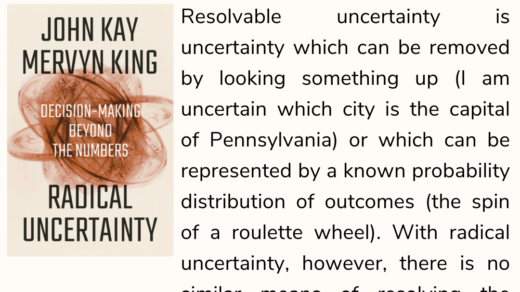Jim Collins identified characteristics of consistently successful companies, such as having humble leaders, getting the right people on the team, and maintaining discipline (what Collins called “rinsing your cottage cheese” in homage to six-time Ironman triathlon champion Dave Scott’s habit of rinsing his cottage cheese to reduce the fat content). Collins singled out eleven great companies that kept to his principles. In the decade following the publication of his book, only one of the eleven produced strong growth. One was bought out. One was taken over by the government, and the other eight generated zero returns. The fact that the great firms shared attributes does not imply that those attributes contribute to success. Perhaps the lowest-performing firms also share those attributes. Selecting the best firms and looking at their attributes is not model thinking. Model thinking would derive attributes that cause success, such as talented workers. It would then test those conclusions against data, and if possible look for natural experiments—instances where the relevant attributes change randomly. Other models, such as the dancing and rugged landscape models we cover in Chapter 28, call into question Collins’ core assumptions. If the economy is complex, traits that prove successful today need not work in the future. What creates great success now—big rocks first—may not be a good strategy in ten years. As a rule, we should apply many models before making broad pronouncements, lest we risk correspondingly large errors. We should also avoid being fooled by patterns. What appears to be a trend might well be random.
The pitfalls of making judgements from small sample sizes and trying to identify common traits of only successful examples or companies. Also, over time, the traits for success might change, so jumping to conclusions too early on or refusing to adjust your internal models might leave you red-faced in the end.



